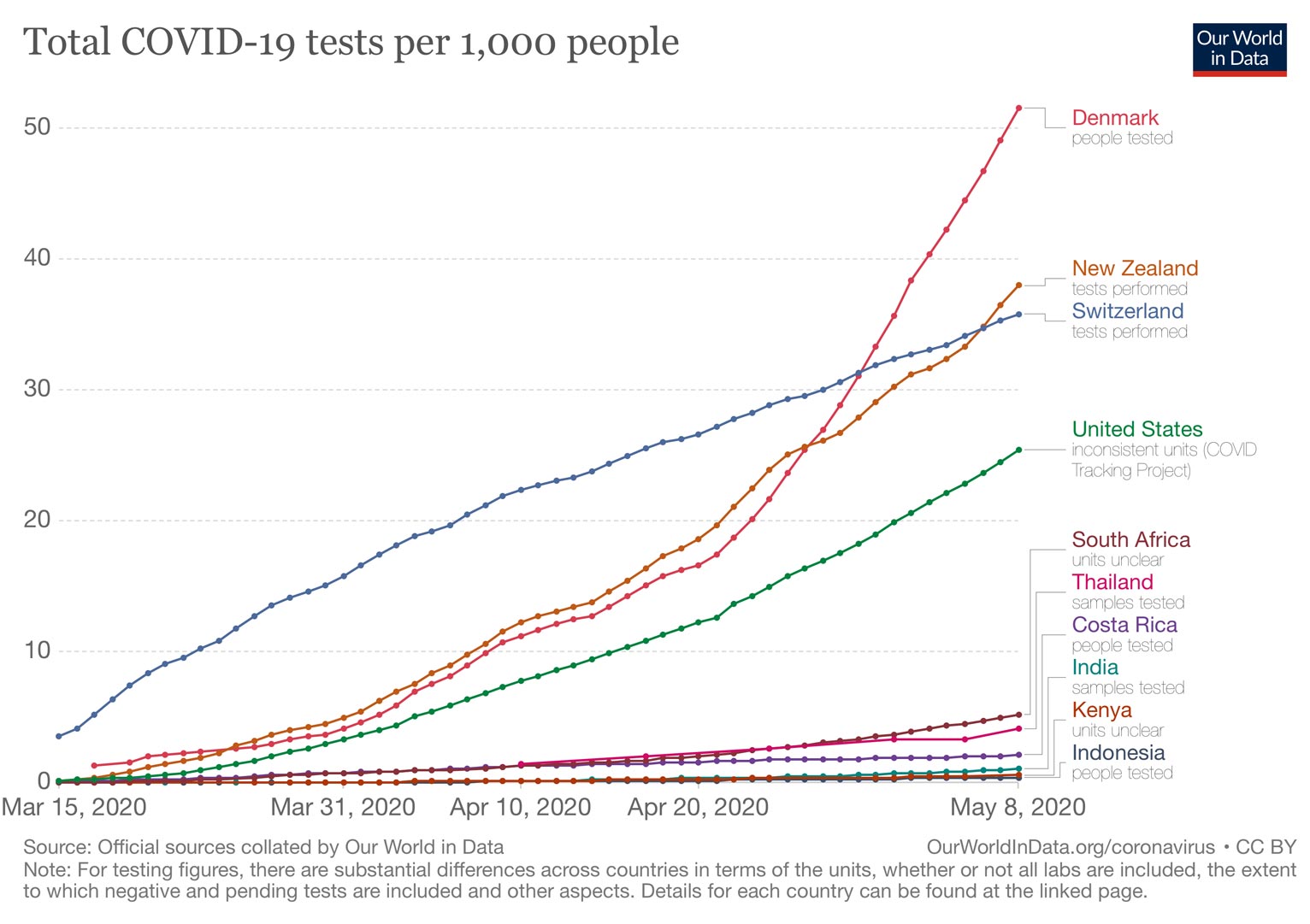Direkt zu
5 questions to Dina Pomeranz
The challenge to address Covid-19 related urgent health needs and to protect citizens from deep economic distress vary substantially across countries worldwide. In low-and middle-income countries resources and infrastructure are lacking as to implement appropriate measures. This can lead to very negative long-term effects, for example maintaining other health programs such as vaccines for children. Dina Pomeranz offers her analysis and issues a wake-up call to the global community.
Dina Pomeranz, what is the Covid-19 situation like in developing countries?
Since 80% of the world’s population live in low-and middle-income countries, the specific experiences across these countries vary a lot. A general concern though is that in lower income countries with less resources, the trade-offs in addressing this crisis are much starker than in wealthier settings. For countries with less financial resources, it is both much more challenging to address the urgent health needs, and to protect their citizens from deep economic distress. Health systems in lower-income countries tend to be weaker and less well-equipped. At the same time, when people lose income in economically poor settings, they go from already difficult economic situations to deep hardship. While for someone in Zurich, the question of whether to stay at home and keep social distancing may, for example, circle around missing one’s friends or relatives, for someone in Nairobi, staying at home may mean losing that day’s income and as a result not being able to feed one’s children.
What do we know about Covid-19 infection rates in developing countries?
Again, the experiences vary substantially across countries. One constraint is that in order to have reliable information about infection rates, extensive testing is required. In lower-income countries, the resources and infrastructure to implement very large numbers of tests are also lacking. So far, it is hard to know how the Covid-19 infections will evolve in lower-income countries, both because of lack of testing data and because in many lower-income countries, the infections started spreading later. There are both reasons to expect the infection and mortality will be higher or lower than in rich countries. One reason that it may be lower is that people in lower-income countries are much younger on average. Reasons that it may be higher include potential negative interactions with other pre-existing health problems and fewer health resources to help those who are infected. Only time and future data analysis will tell, as we learn more about the properties of the virus and its spread.
Which insights from crisis management (or non-management) in Europe, Asia, and North America can be used for these countries?
Interestingly, there has been a lot of knowledge transfer in the opposite direction in recent months. There were a lot of insights from crisis management for former epidemics in low-income countries that have been applied in Europe, Asia, and North America. Many lessons that have been learned from the outbreaks of Ebola, HIV, and other epidemics for example in several African countries have been used in the North now, such as specifics on how to implement contact tracing, social distancing, and communication to the population about the epidemic. Many of the leading public health experts on Covid-19 have previously worked on the Ebola outbreak.
What measures are urgent in the global community to stop the further spread of Covid-19 in developing countries?
The economic crisis resulting from the Covid-19 pandemic is expected to be particularly severe in many low- and middle-income countries. In addition to reduced domestic activity, there are several other factors compounding the difficulty. There is a sharp drop in remittance payments that migrant send back from richer countries to their countries of origin. Demand from foreign trade and production chains for goods for rich countries, such as clothes, electronics, etc. is falling. And governments already overburdened with debt are struggling with plummeting tax revenues. In addition to Covid-19-related health issue, this also poses problems in that resources are lacking for other important health programs such as vaccines for children. This can lead to very negative long-term effects.
During this time, it is crucial that the global community steps up its support. This is both important to reduce enormous human suffering, and is also in our own interest. If the global economy suffers, this will negatively affect internationally connected rich economies such as Switzerland as well, through our supply chains, trade, finances, etc. And as long as Covid-19 cases continue in some areas of the world, they put the whole globe at risk of new outbreaks.
Finally, it will also be crucial that Covid-19 treatments and vaccination will not be hoarded by rich countries once they become available. Now is the time to set a structure for this, before we know which country will be the first to develop such medications. The global community must develop rules of the game that provide access to all countries by need, not just by resources.
What can individuals from higher-income countries do to help?
There are great organizations that allow us to send money directly to people living in extreme poverty (i.e. with less than 2 Swiss Francs per day) and who are gravely affected by the Covid-19 crisis. One that I recommend is Give Directly. They are an evidence-based, highly transparent organization that allows anyone to send money directly to those most affected. The payments are transferred directly to recipient’s cell phones in Kenya, so notheft is possible on the way there. You can find the information about their international Covid-19 response here.
The challenge to address Covid-19 related urgent health needs and to protect citizens from deep economic distress vary substantially across countries worldwide. In low-and middle-income countries resources and infrastructure are lacking as to implement appropriate measures. This can lead to very negative long-term effects, for example maintaining other health programs such as vaccines for children. Dina Pomeranz offers her analysis and issues a wake-up call to the global community.
Dina Pomeranz, what is the Covid-19 situation like in developing countries?
Since 80% of the world’s population live in low-and middle-income countries, the specific experiences across these countries vary a lot. A general concern though is that in lower income countries with less resources, the trade-offs in addressing this crisis are much starker than in wealthier settings. For countries with less financial resources, it is both much more challenging to address the urgent health needs, and to protect their citizens from deep economic distress. Health systems in lower-income countries tend to be weaker and less well-equipped. At the same time, when people lose income in economically poor settings, they go from already difficult economic situations to deep hardship. While for someone in Zurich, the question of whether to stay at home and keep social distancing may, for example, circle around missing one’s friends or relatives, for someone in Nairobi, staying at home may mean losing that day’s income and as a result not being able to feed one’s children.


Contact
Dina Pomeranz's research focuses on public policies in developing countries, in particular in the areas of taxation, public procurement, firm development and the environment. Prior to joining the University of Zurich, she was an assistant professor at Harvard Business School, where she taught entrepreneurship for MBA students, and a Post-Doctoral Fellow at MIT's Poverty Action Lab.
Her work has been published in academic journals including the American Economic Review, the Quarterly Journal of Economics, the American Economic Journal: Applied Economics, the Journal of Economic Development and the Journal of Human Resources. In 2017, she was awarded one of the prestigious grants from the European Research Council (ERC) for her research on tax evasion and the role of firm networks.
She is an affiliate professor at the Abdul Latif Jameel Poverty Action Lab (J-PAL), the Bureau for Research and Economic Analysis of Development (BREAD) and the Center for Economic Policy Research (CEPR) and a member of the International Growth Centre (IGC). In 2018, she was elected to the Council of the European Economic Association (EEA), and in 2020 to the Board of Management of the International Institute of Public Finance (IIPF). She is a co-founder of the Graduate Applications International Network (GAIN), which supports prospective students from Africa in applying for graduate school in economics and related fields.
Professor Pomeranz also aims to contribute to the movement towards more evidence-based policy making, both in developing and economically more developed countries. With this goal in mind, she serves on the board or advisory board of a number of social enterprise ventures committed to translating research into practice, including Helvetas, Evidence Action, Policy Analytics, TamTam-Together Against Malaria and IDinsight. She has served as an expert witness to the Swiss parliament and is a member of the Federal Advisory Committee on International Cooperation.
Dina Pomeranz's research focuses on public policies in developing countries, in particular in the areas of taxation, public procurement, firm development and the environment. Prior to joining the University of Zurich, she was an assistant professor at Harvard Business School, where she taught entrepreneurship for MBA students, and a Post-Doctoral Fellow at MIT's Poverty Action Lab.
Her work has been published in academic journals including the American Economic Review, the Quarterly Journal of Economics, the American Economic Journal: Applied Economics, the Journal of Economic Development and the Journal of Human Resources. In 2017, she was awarded one of the prestigious grants from the European Research Council (ERC) for her research on tax evasion and the role of firm networks.
She is an affiliate professor at the Abdul Latif Jameel Poverty Action Lab (J-PAL), the Bureau for Research and Economic Analysis of Development (BREAD) and the Center for Economic Policy Research (CEPR) and a member of the International Growth Centre (IGC). In 2018, she was elected to the Council of the European Economic Association (EEA), and in 2020 to the Board of Management of the International Institute of Public Finance (IIPF). She is a co-founder of the Graduate Applications International Network (GAIN), which supports prospective students from Africa in applying for graduate school in economics and related fields.
Professor Pomeranz also aims to contribute to the movement towards more evidence-based policy making, both in developing and economically more developed countries. With this goal in mind, she serves on the board or advisory board of a number of social enterprise ventures committed to translating research into practice, including Helvetas, Evidence Action, Policy Analytics, TamTam-Together Against Malaria and IDinsight. She has served as an expert witness to the Swiss parliament and is a member of the Federal Advisory Committee on International Cooperation.